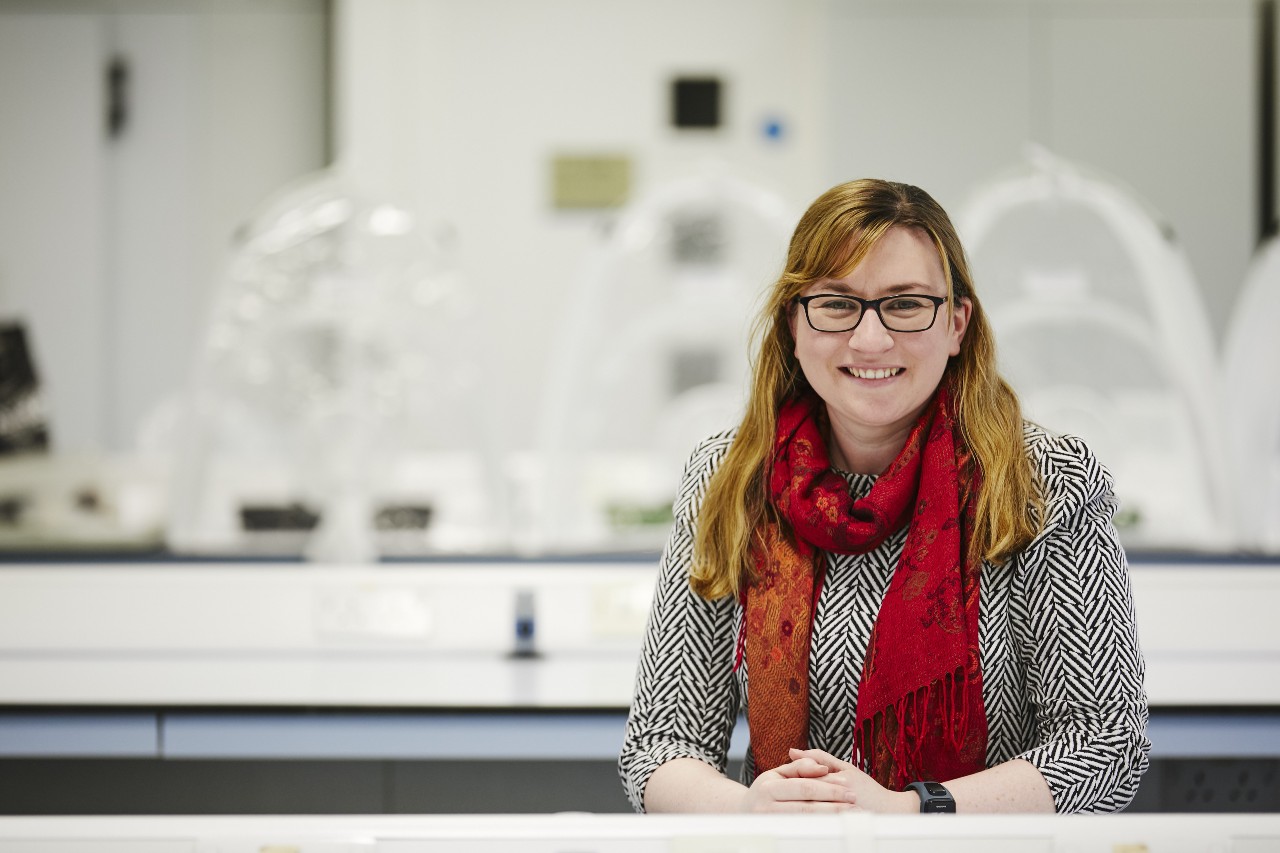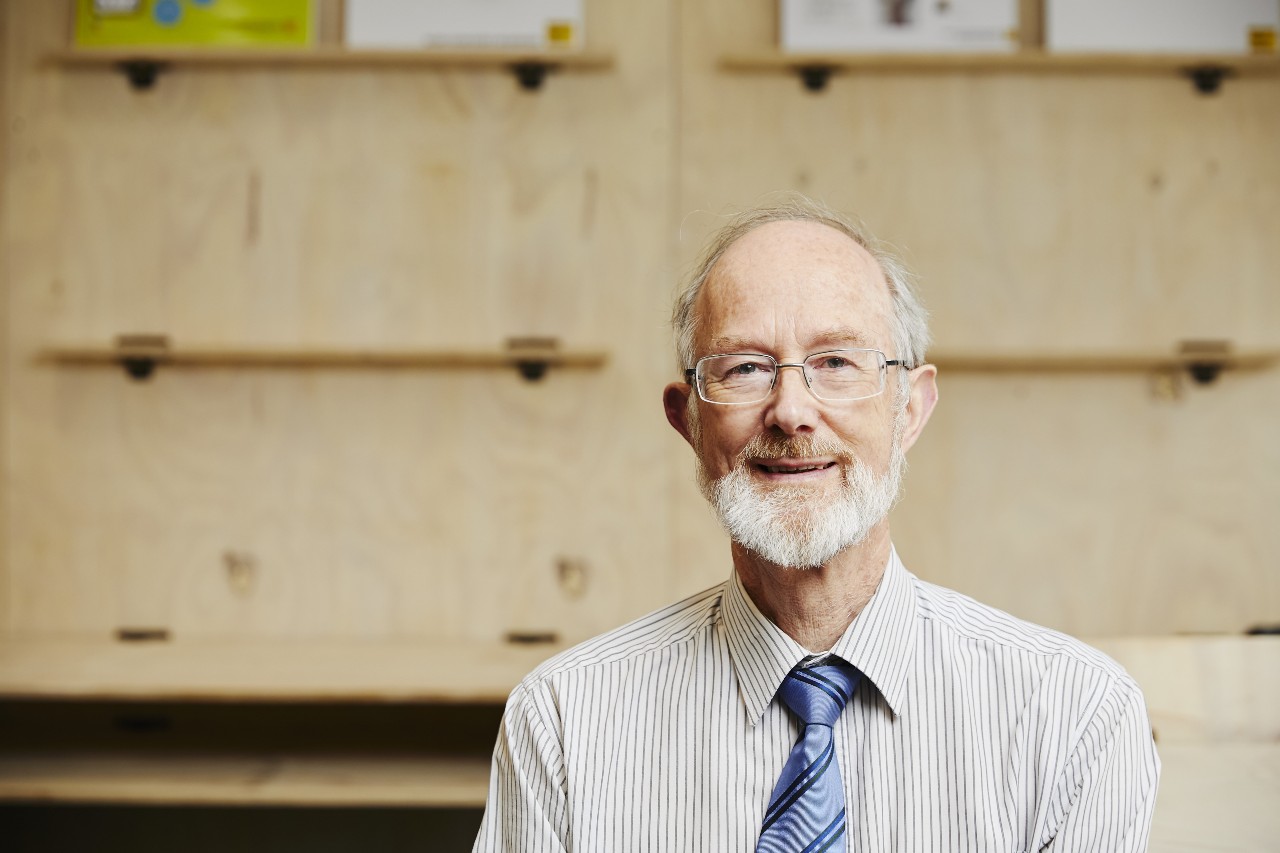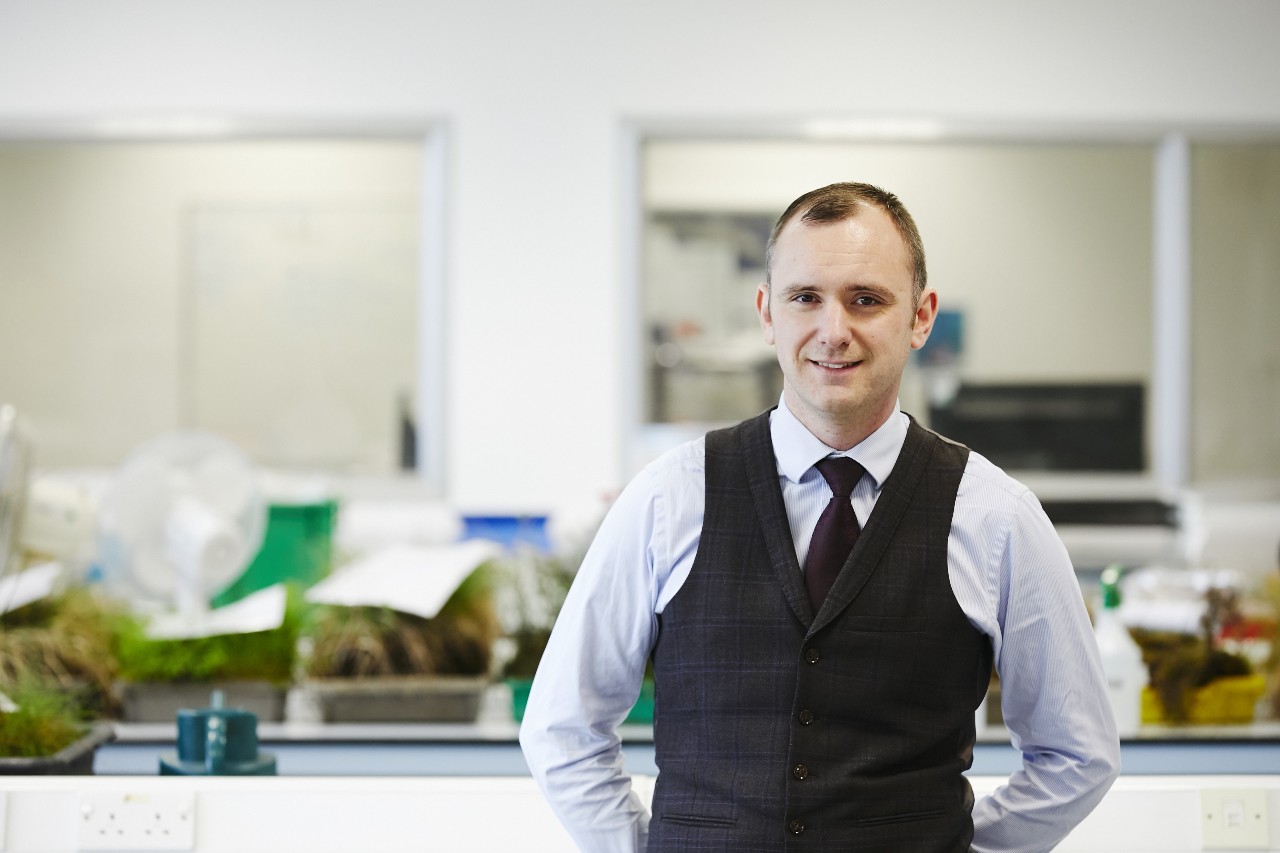A world without waste
Enough plastic is disposed of each year to circle the Earth four times – and yet every second, more than 3,000 plastic bottles are produced using virgin materials.
More than 20 million tonnes of electronics are discarded worldwide every year – and yet six of the naturally occurring resources used to make these electronics are set to become exhausted in the next century.
Around 85 per cent of used clothing ends up in landfill – and yet 80 billion new garments are produced annually from new materials.
The statistics clearly show the extent of the problem facing the planet. Resources are dwindling, landfills are over-flowing – and yet we continue to deplete our natural resources, converting raw materials into new products that ultimately end up back in the ground as waste.
Overall, 55 per cent of global waste ends up in landfill, our oceans and on our streets as litter. The remainder is used in some way with 25 per cent incinerated, becoming energy from waste, and just 20 per cent recycled, becoming new products.
It is widely accepted that this global problem needs a global solution – and that solution could be found in the concept of a circular economy.
Sometimes known simply as circularity, the circular economy is a system, which aims to eliminate waste and promote the continued and sustainable use of resources. How? Simple really. By revaluing waste, using what we consider rubbish to manufacture new products of an equal or greater value, instead of burying or incinerating it.
Picture old discarded electronics transformed into the latest smart phones, old clothes repurposed into the latest fashion items, single-use plastics like bottles, remade into lasting items like tables and chairs.
Economically speaking, the circular economy promotes the notion that a sustainable world does not have to stunt development. It does not set out to restrict growth or reduce quality of life for consumers, but rather maximises the value of resources already in the system.
Across Manchester Met, academics, students and researchers are engaged in making the circular economy thrive.
Clarity on circularity
“At the moment, our society is based on a linear economy,” explained Dr Carly Fletcher, a Post-Doctoral Research Associate at Manchester Metropolitan. “We extract resources, we make products out of those resources, we use those products and then we throw them away.
“Even when we reuse and recycle products, we are often just delaying the inevitable – them ending up as waste and in landfill.”
Dr Fletcher explained that the circular economy is about changing these throwaway habits to reduce environmental impacts. “Whether it’s food, packaging, old clothes or used electrical items, when we use something and believe it to have no use anymore, we throw it away.
“End-of-life products which can be recycled are often made into poorer quality products, which are used just once more before becoming waste.

“The current linear approach follows the principles of Take, Make, Use, Dispose, Pollute.” Dr Fletcher added: “But a circular model would see a product or material used and reused time and time again, looped in a continuous cycle – never ending up as waste.
“How? By following the principles of Reduce, Reuse, Recycle.
“Reducing consumption, reusing or repairing products where possible – recycling everything else.
“When products are recycled, finding ways to maintain their value is also essential.”
David Tyler, Professor in Fashion Technologies at Manchester Metropolitan, said: “The guiding principle behind the circular economy is that we do not have waste.
“When things come to the end of their lives, it would be useful if we had designed them so that they can be taken apart and the components can find a place as a resource for the next cycle of industrial activity.”
Circular economy vs recycling
But, how does the circular economy differ from our current approach to recycling and sustainability?
Current recycling practices generally see waste materials separated, with only what is considered higher value waste like metals, hard plastics, and paper, actually being recycled. Everything else ends up in landfill or incineration.
This is because there is little economic benefit to waste and recycling companies for reusing lesser value materials. Plus, after products like plastic bottles are recycled, they tend to end up as lower value products like foil packaging, meaning they eventually end up as waste anyway.
Dr Fletcher said: “To achieve a circular economy, we need to do more than just recycle more.
“I think circular economy is seen as recycling on steroids – but it is not. It is a whole shift in mentality about how we use resources.
“We actually need to consume less and see products repaired and reused, and then we need to see recycled materials transformed in products of an equal or higher value.”
In a true circular economy, nothing would end up as waste. But to achieve this, circular economists say there must be more uptake for recycled materials and more innovation to enable all waste produced to be successfully recycled. Where possible, individuals must also repair and reuse products as well, so they do not end up as waste in the first place.

However, this comes with challenges, and Dr Ed Randviir, Senior Lecturer in Chemistry and Environmental Science at Manchester Metropolitan says one of those challenges is changing people’s mindsets. He said: “I think there’s a big perception around recycled materials that they cannot be the same quality because they have been recycled – which is not true.”
“We need to change that perception to make this work.
“If we can, I think that businesses will be more likely to invest in technologies and make use of recycled materials, because they’ll be more commercially viable.
“We must also talk about waste citizens. Educating people about waste and getting more people to behave responsibly is how we are going to get where we need to be.”
In fact, Dr Randviir believes around 80 per cent of people will be willing to buy into a circular economy, which would see the majority of new products made from recycled materials, if there was more education on the subject.
He added: “If we can get to a point where plastics are fed back into our society through whatever means possible, if we can ensure that our clothes are getting recycled properly by any means possible, then I believe people will use this as a badge of honour.”
Resource limitations
Professor David Tyler believes the main driving force behind the circular economy is the awareness that our resources have limitations.
He said: “We have a long-term crisis in resource availability because all, or most of our natural resources are of limited supply and we do not want to be deprived of those resources.
“Instead, we want to be in a situation where both mature and developing economies can access materials that are relevant to their products – and one of the ways of doing this is through the circular economy.”

But, why do we need to see this change now more than ever? Naturally occurring resources, which include anything from water and land to minerals, are currently being used up at an alarming rate. In fact, the United Nations predicts the consumption of these resources will double by 2050 if nothing is done to slow this down.
Dr Randviir explained: “We are consuming more than ever before, and our population has skyrocketed in the past 50 to 70 years.
“The juxtaposition of having this population growth and this over-consumption at the same time has led us to a completely unsustainable way of living on a global scale.
“We will run out of natural resources if we continue to throw things away and put them back in the ground.”
Waste innovation
Dr Rhiannon Hunt, Circular Economy Project Manager at Manchester Metropolitan, agrees, stating: “The continued depletion of finite natural resources and the accumulation of wastes and pollutants in our environment has caused us to look at what we previously considered worthless or ‘waste’, and how we can revalue it.”
She believes innovation is key to achieving a circular economy, including new products, new services and new business models.
She said: “As the old adage goes, one’s trash is another’s treasure.
“We believe this at Manchester Metropolitan University and many of our projects aim to create a testbed and living laboratory where new ideas and innovations can be trialled – and this is what a number of our projects are actively demonstrating.”
She explained: “In these projects we have taken everything from hardcore demolition waste, to damaging single-use plastics and looked at ways in which these materials can be recycled and upcycled into higher-value products using innovative technologies.
“We have looked at additive manufacturing and intrusionextrusion moulding, in which we have specific expertise at the University, as just one of many potential avenues for innovation.
“Research is also underway to determine how many times these processes can be repeated, with the potential to create new products multiple times from the same material, which would have otherwise ended up in landfill, incineration or, worse still, the environment.”
A better economy for everybody
One of the key principles of the circular model is that it will support economic development and prosperity and not stunt it. It is estimated that 29.7 billion dollars stands to be saved each year by British businesses by improving resource efficiency.
Professor Tyler said: “One of the attractions of the circular economy for policy makers is that it will bring recycling and the production of valuable materials closer to hand.
“To achieve a circular economy we do not want to be transporting waste and materials long distances, as this increases fuel requirements and emissions, which is not the aim.
We will run out of natural resources if we continue to throw things away and put them back in the ground.
“This is going to generate employment and investment.
“So there is a great need to achieve commercial viability of the supply chain for the circular economy – and that requires research, which is ongoing.
“Now, today’s small initiatives are not going to get us to zero waste – we have to change gear for that. But there are positives. Big brands, businesses and manufacturers are starting to talk about the circular economy more and more.”
Dr Hunt added: “Investment is key if we are to see rapid, widespread adoption of the circular economy.
“As the circular economy demands disruptive innovation, costs can present a challenge for organisations looking to make the transition from linear to circular.
“But hopefully we will see more capital moved away from old-fashioned businesses, which are associated with damaging the environment, in favour of greener business models – and I believe the change in public mood is already helping this.”
Not a silver bullet
Dr Rhiannon Hunt believes that, whilst the circular economy is the most promising solution we have available for many of the environmental challenges that we are experiencing today, it is important to remember that many of the enabling technologies are still in their infancy.
She said: “It’s important to remember that, whilst it is an exciting and potentially revolutionary alternative to the current, unsustainable situation, the circular economy is not a silver bullet.
“In certain situations, enabling technologies may not yet be sufficiently developed to match the performance of existing solutions.
Now, today’s small initiatives are not going to get us to zero waste – we have to change gear for that. But there are positives. Big brands, businesses and manufacturers are starting to talk about the circular economy more and more.
“Products, processes and business models in the linear economy have become established over a long period of time and therefore benefit from efficiency and economies of scale.
“It is going to be difficult for new innovations to compete and infiltrate the market initially.
“But, at the heart of the circular economy is collaboration.
“The academic community, in collaboration with businesses, will play an integral role in facilitating this transition, combining cutting edge research and specialist expertise with realworld application, testing and upscaling of solutions.”
Circular Economy at Manchester Metropolitan
As one of the UK’s most sustainable universities, Manchester Metropolitan is committed to taking practical steps to support the transition to a circular economy, as well as carrying out important and impactful research in the area.
From the creation of a sustainable food policy, which aims to ensure food and drink at the University is produced, consumed and disposed of in such a way that considers the environment, to our Give it Don’t Bin It scheme – an end-of-year donation campaign for students moving out of halls of residence.
Together with partners across Greater Manchester, the University has also pledged to eradicate avoidable singleuse plastics from their catering, laboratories and stationery, by 2022.
Researchers across the University are also working to tackle the challenge of transitioning to the circular model and to achieve this are engaged with a wide range of crosssector projects, including flagship ventures, TRANSFORMCE and ShaRepair.
TRANSFORM-CE
With the help of 36 partners from across North West Europe, Manchester Metropolitan are currently leading a €9.6 million project which aims to give single-use plastic waste a sustainable lease of life by transforming it into valuable new products.
Utilising expertise in Industry 4.0, next-generation materials and 3D printing, plastic waste will be turned back into raw plastic material, known as feedstock, to then become everything from tables and chairs to bespoke 3D printed products.
Supported by the Interreg North West Europe Programme as part of the European Regional Development Fund (ERDF), the project, named TRANSFORM-CE, not only aims to divert thousands of tonnes of waste from landfill across North West Europe, but also create new economic demand for the uptake of recycled plastic materials by businesses, both locally and further afield.
ShaRepair
It is estimated that in the UK alone, 2 million tonnes of waste electrical items are discarded every year. This can include anything from large and small household appliances like white goods, to tools, toys and personal devices like laptops and smart phones.
ShaRepair, supported by the Interreg North West Europe Programme as part of the European Regional Development Fund (ERDF), aims to reduce the alarming amount of waste created from electrical and electronic goods by encouraging and empowering the movement of ‘citizen repair’.
To do this, members of the public can access 3D printers to produce new parts for their broken items, with the specifications for these products being accessible via the cloud.
Manchester Metropolitan’s part in the project is to develop a comprehensive technical database, which includes the specifications for millions of electrical and electronic parts. The cloud will be available to users of repairs cafés free of charge.
Building a greener future
Manchester Metropolitan has been at the forefront of sustainability in the Higher Education sector for more than a decade.
Now it is looking further into the future as it develops its new 2030 Sustainability Strategy, which will deliver our response to the climate crisis, as well as supporting global agendas to tackle poverty, inequality and injustice.
The progress made to date has been impressive. We have maintained our place in the top three of the People and Planet University League for the last eight years, and are currently ranked as the second greenest university in the UK. Carbon emissions have been reduced by 61.7 per cent since 2005-06, and the University has pledged to be zero carbon by 2038.
Manchester Metropolitan has been at the forefront of sustainability in the Higher Education sector for more than a decade.
The University reuses or recycles 54.9% of its waste, and is part of a Greater Manchester-wide pledge to eradicate avoidable single use plastics by 2022.
We were the first university in the world to deliver Carbon Literacy to our students and staff, and have developed an innovative and unique peer-to-peer training model.
We continue to invest in renewable energy sources and 72 per cent of our vehicle fleet is low emission.
The University’s Vice-Chancellor Professor Malcolm Press said: “Manchester Metropolitan University’s commitment to sustainability is more important now than ever. As we start to emerge from the current pandemic, it offers an opportunity to develop the skills and infrastructure of the future, while driving innovation.”
